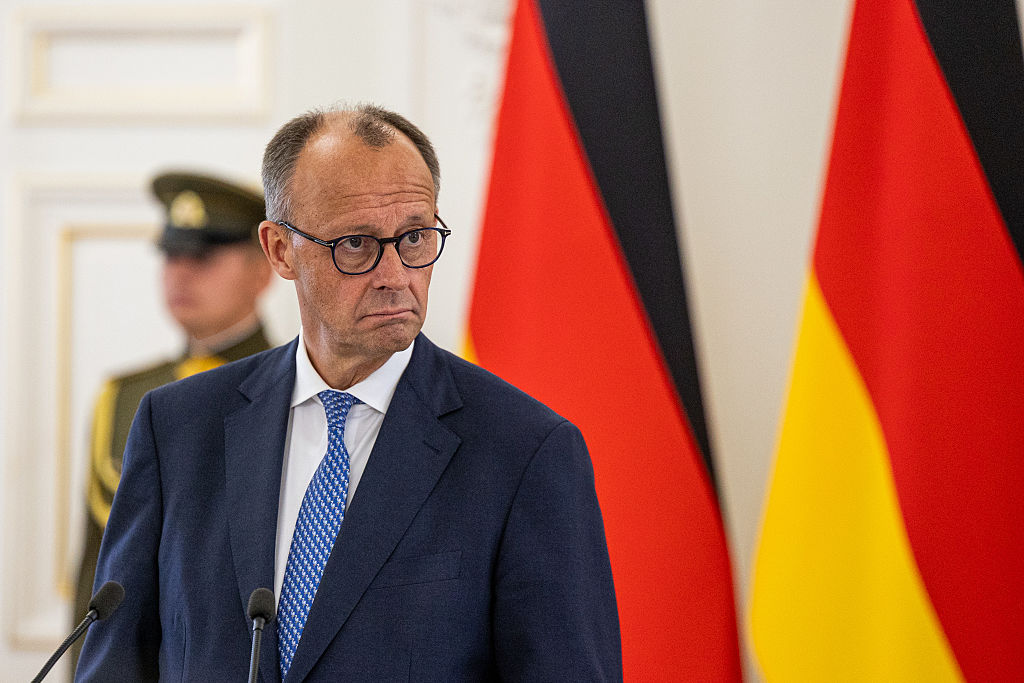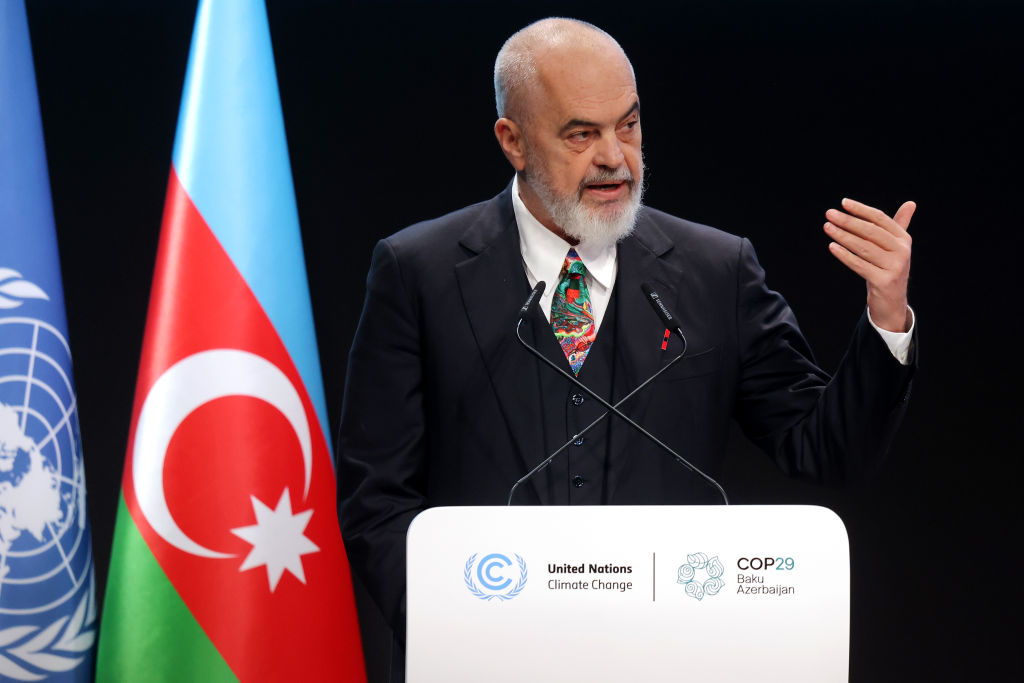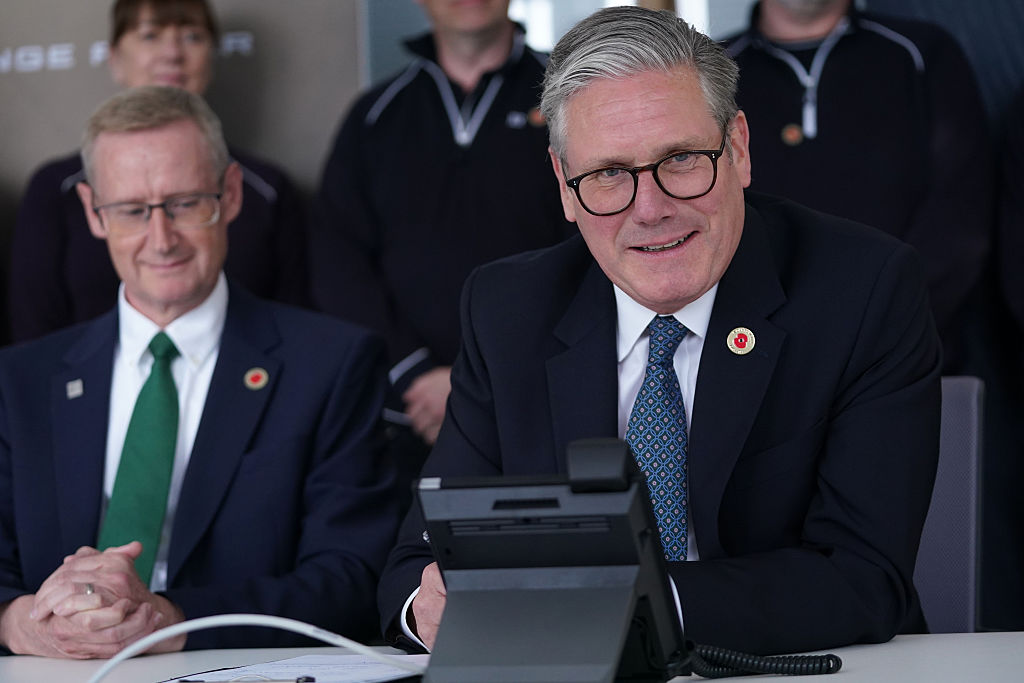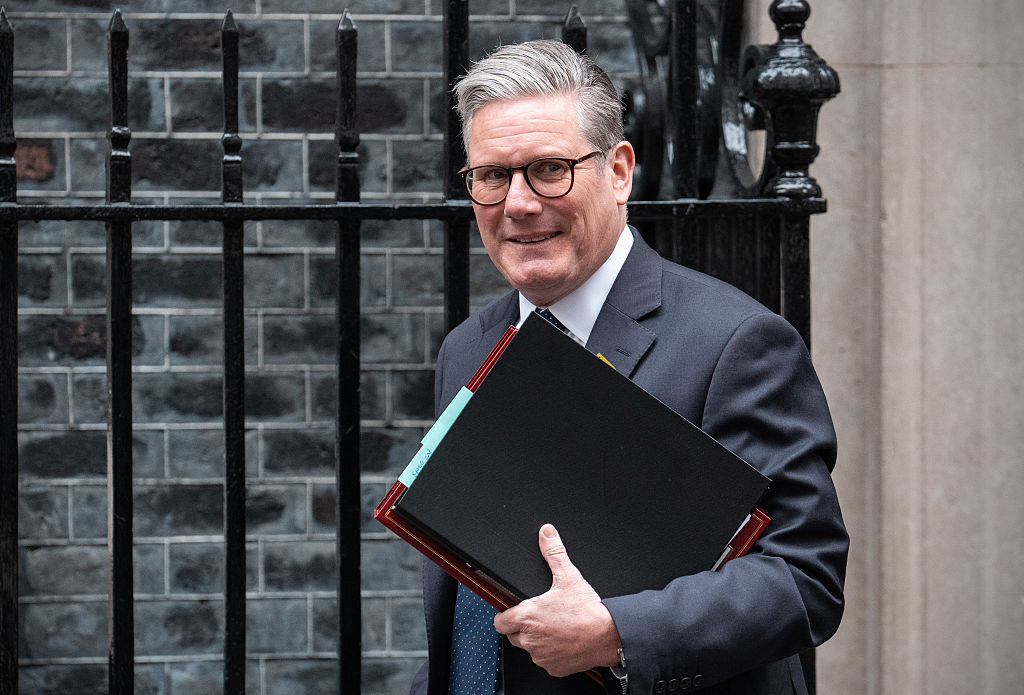US President Donald Trump said the European Union had yet to offer a “fair deal” on trade, as Washington negotiated tariff agreements with friends and foes alike.
“We’re talking but I don’t feel that they’re offering a fair deal yet,” Trump said of the EU, speaking to reporters on board Air Force One early on June 17 before arriving back in the US from a G7 summit in Canada, citing the crisis between Iran and Israel.
“We’re either going to make a good deal or they’ll just pay whatever we say they will pay,” he said regarding the EU.
World leaders at the summit had on June 16 pushed Trump to back away from his punishing trade war, arguing that it posed a risk to global economic stability.
Before his departure, Trump and European Commission President Ursula von der Leyen met for a few minutes on the sidelines of the G7 in what the European leader told reporters was a “good and intensive discussion” on trade.

“Of course, it’s complex but we are advancing and that is good,” von der Leyen said after Trump’s criticism of the EU’s position, AFP reported.
She added, though: “From the very beginning, I have been very clear that a negotiated solution is my favourite solution,” stating the EU was ready to retaliate with countermeasures if talks broke down.
The EC chief said talks between the US and Europe were ongoing, including on the sidelines of the G7 on June 17 and that both sides were working hard to strike an agreement by the July deadline.
“It’s complex but we are advancing, that is good and I push hard to pick up more speed, so we are mixed in the negotiations and we will see what the end brings,” she said, according to Reuters.
Shortly after taking office, Trump upended the global economic order by accusing the US’s trading partners of unfair practices and he announced huge global tariffs.
He imposed a blanket 10 per cent tariff on most US trading partners and unveiled higher individual rates on dozens of economies, including India and the EU – although he swiftly paused the elevated rates.
The pause on those higher duties was due to expire on July 9, although the White House has indicated it could extend the deadline for countries that it believed were negotiating in good faith.
US Treasury Secretary Scott Bessent stayed behind after Trump left, spearheading negotiations on trade with the other G7 countries.
At the G7 summit, leaders also promised Ukrainian President Volodymyr Zelensky fresh support as Russia stepped up attacks on its neighbour, AFP reported.

Trump, who has had a volatile relationship with Zelensky, had been due to meet him but left before doing so.
Zelensky arrived at the meeting after Russia hit Kyiv with one of the worst bombardments since it invaded in February 2022, killing at least 10 people in the capital.
Canadian Prime Minister Mark Carney welcomed him and announced Can$2 billion (€1.28 billion) of military support, including drones and helicopters, for Ukraine.
“This underscores the importance of standing in total solidarity with Ukraine,” Carney told him, calling for “maximum pressure against Russia”.
French President Emmanuel Macron accused Russian President Vladimir Putin of exploiting global focus on the Middle East to carry out the deadly attack on Kyiv.
“It shows the complete cynicism of President Putin,” Macron told reporters at the summit.
Carney also joined Britain in tightening sanctions on Russia’s so-called shadow fleet of ships used to circumvent international sanctions on its oil sales.
Britain said it wanted to ramp up economic pressure to show Putin it was in his interest to end the war.
“These sanctions strike right at the heart of Putin’s war machine, choking off his ability to continue his barbaric war in Ukraine,” Prime Minister Keir Starmer said in a statement.

US lawmakers have also drafted a package of new sanctions on Russia but Trump has been hesitant to give his support, saying he wanted to preserve relations with Putin, whom he spoke to by telephone on the eve of the G7 summit.
Trump infamously berated Zelensky in the Oval Office on February 28, saying he was ungrateful for US aid but has since voiced disappointment that Putin has rebuffed a US proposal for at least a temporary ceasefire.
Zelensky told Carney that the latest Russian attack was a “big tragedy” for Ukrainian families and it showed the need for allies’ support – and made clear that he still backed Trump-led calls for negotiations.
“It’s important for our soldiers to be strong in the battlefield, to stay strong until Russia will be ready for the peace negotiations,” the Ukrainian leader said.
“We are ready for the peace negotiation – unconditional ceasefire. For this we need pressure.”
The G7 – Britain, Canada, France, Germany, Italy, Japan and the US – was holding its first summit since the return to power of Trump, who has openly questioned longstanding US alliances.
Trump’s negotiators have already sealed a deal with the UK and, outside of the G7, reached an agreement to lower tariffs with rival China.
Trump signed an agreement on June 16 formally lowering some tariffs on imports from Britain on the side-lines of the G7 summit. It reaffirmed quotas and tariff rates on British automobiles and eliminated tariffs on the UK aerospace sector but the issue of steel and aluminium remained unresolved, Reuters reported.
“We signed it and it’s done,” Trump said.
Starmer called it “a very good day for both of our countries, a real sign of strength”.
The US intended to impose a quota on steel and aluminium imports from the UK that would be exempt from 25 per cent per cent tariffs but it was conditional upon Britain’s demonstrating security on steel supply chains and production facilities, according to an executive order released by the White House.
Japanese Prime Minister Shigeru Ishiba said he had “frank” discussions with Trump on June 16 but made clear the importance of automobile exports to the world’s second-largest developed economy.

“We have not reached an agreement on the package as a whole,” Ishiba told reporters.
Trump said on June 17 there was a chance of a trade deal between Washington and Japan, according to Reuters.
“They’re tough, the Japanese are tough but ultimately you have to understand we’re just going to send a letter saying, ‘This is what you’re going to pay, otherwise you don’t have to do business with us.’
“But there’s a chance,” he said.





